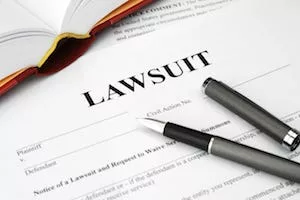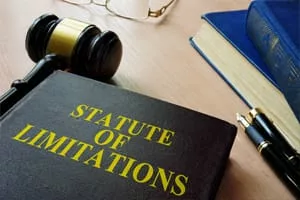Compassionate Wrongful Death Attorneys in Illinois

When a loved one’s life is tragically cut short due to an individual or institution’s negligence, family members are left reeling. They need to grieve and the last thing they want to think about is a lawsuit. At The Collins Law Firm, we understand that the recovery of damages can never compensate for the pain of losing a family member too soon. However, a lawsuit may help your family recover financially from your devastating loss and may prevent future tragedies form occurring. If you are looking for the right law firm to represent your family after the death of a loved one, then you have come to the right place. Our compassionate Naperville, Illinois wrongful death attorneys can support your family through this tragedy and bring you some peace of mind for the future.
What Does Wrongful Death Mean?
What Should I do if I Think I Have a Wrongful Death Case?
What Kinds of Cases do Our Wrongful Death Attorneys Handle?
Who can Sue for Wrongful Death in Illinois?
What Must I Prove in a Wrongful Death Lawsuit?
How Much Time do I Have to File a Lawsuit?
Who can I Sue in a Wrongful Death Lawsuit?
What Damages can I Recover in a Wrongful Death Claim in Illinois?
Does Illinois Have Caps on Damages in Wrongful Death Cases?
What if My Loved one was Partially Responsible?
Why Should I Hire The Collins Law Firm?
How Expensive Will This be and How Long Will it Take?
Wrongful death is a legal term that refers to a death caused by the fault of another person. A wrongful death lawsuit is one that is brought by a family member because a loved one has died as a result of the negligent behavior or unintentional act of another person. Common causes of wrongful death might be a car accident, medical malpractice, or nursing home negligence. Illinois has laws that allow a victim’s family or estate to recover compensation when a wrongful death occurs. Those laws are:
These are separate claims, but may be pursued at the same time depending on the circumstances of the case.

If you believe that your loved one’s death may have been caused by another person’s negligence, you need to contact an experienced wrongful death attorney as soon as possible. In many wrongful death cases, crucial evidence can be lost if not quickly preserved. At The Collins Law Firm, we recognize this important issue and are ready to quickly mobilize to preserve evidence. We know how to thoroughly investigate all the factors that led to the fatal accident that took your family member from you. We will review any police reports that are available, consult with experts, and interview witnesses and other victims. We will leave no stone unturned in trying to recover compensation on your behalf.
Our experienced wrongful death attorneys help grieving families with a wide variety of wrongful death cases. Some examples of these include:
Medical malpractice wrongful death cases due to:
Nursing home wrongful death cases, caused by:
Pharmaceutical wrongful death cases, due to:
Motor vehicle accident wrongful death cases, including:
Filing a wrongful death lawsuit can be intimidating for many people going through the process for the first time. You can take comfort in the fact that we are trial attorneys who have recovered millions in compensation for our clients, and who have the skills, knowledge and resources to go toe-to toe with the people and corporations responsible for your loss.

A wrongful death lawsuit must be brought by a person who has standing to pursue the case in Illinois. This personal representative for the deceased may be named in the victim’s will, however, if no one is named, a close family member can petition the probate court to be appointed the personal representative. The lawsuit is then brought on behalf of the victim’s next of kin. In most cases, the next of kin includes the deceased person’s immediate family: the surviving spouse, children, siblings or parents (including adoptive parents and adopted children). If no immediate family survives, a lawsuit may be brought on behalf of a niece or nephew.
In a wrongful death lawsuit, it is up to the party initiating the case to prove certain things:

Wrongful death lawsuits in Illinois and in most states have time constraints called statute of limitations. If you do not initiate a lawsuit within the time allowed by the statutes, you will be barred from ever recovering compensation. Generally, in Illinois, you must file a wrongful death lawsuit within two years from the date of the incident. There are, however, some exceptions:
Statute of limitations exist to facilitate a swift resolution to cases. By giving plaintiffs a deadline for filing a lawsuit, the state compels them to pursue their case within a reasonable time frame. This helps ensure that valuable evidence does not get lost over time. It is very important that you consult a knowledgeable wrongful death attorney about the relevant statute of limitations in your case-- and the sooner the better-- if you believe that you have a wrongful death claim.
In Illinois, next of kin may sue the individual or the company responsible for the death of their loved one. If a city, state, or county agency is responsible for the death, there are special rules, so you should contact an experienced wrongful death attorney who understands these particular cases. Examples of responsible parties in a wrongful death lawsuit could include:

The damages that you may recover when a loved on dies depend on whether you file a claim under the Wrongful Death Act or the Illinois Survival Act.
In wrongful death lawsuits, survivors may recover “just and fair compensation” for their “pecuniary injuries”, according to the law. This compensation relies on several factors:
Generally you can expect to recover damages for:
In a wrongful death claim, the lawsuit is brought on behalf of the surviving family directly, so the damages go to the next of kin and not to the deceased person’s estate. This shields them from claims by creditors.
In a survival lawsuit, however, the lawsuit is brought on behalf of the deceased’s estate, which then recovers the damages when a person passes away. Creditors of the estate then have a claim against the recovery. Damages in survival actions are recovered for the harm that the victim suffered between the time of injury to the time of death. These damages may include:
Finally, when there are multiple surviving family members entitled to recover damages, a judge will determine how much each person shall receive. This amount will depend on the closeness and quality of the relationship between the family member and the deceased.
Unlike many states, Illinois dos not have a cap on the amount of money that surviving family members can recover in a wrongful death lawsuit. Before 2010, Illinois did have a law that limited non-economic damages in Medical Malpractice cases to $500,000 in actions against doctors and $1,000,000 in actions against hospitals. However, in 2010, the Illinois Supreme Court ruled that this law was unconstitutional.
As tragic as it sounds, there are times when a loved one’s actions were partially responsible for the accident that led to his or her death. What happens to your wrongful death claim as a result? In Illinois, being partially responsibility for events that cause an accident is called contributory negligence. Contributory negligence does not prevent you from bringing a claim under Illinois law. Wrongful death and survival actions can still be brought if the deceased was partially at fault, however, the damages awarded may be reduced. For example, if your loved one is determined to be 1 -49% at fault, then the damages will be reduced proportionate to that percentage. However, if a jury decides that your loved one was more than 50% responsible, the case may be dismissed.

Living through a situation where a loved one has died tragically is heart wrenchingly difficult. Our compassionate Naperville wrongful death attorneys understand that your primary concern is getting answers. We know the pain you are going through and can guide you through the process of finding out what happened and fighting for justice for your loved one. We will lift the legal burden off your shoulders and allow you to grieve in peace. Our attorneys will reach a resolution to your case and recover compensation so you can move on with your life. We will:
Investigate: Our legal team will conduct a thorough investigation into the incident that caused your loved ones death. We will pull together all the medical records and necessary evidence—including consulting with experts-- to determine who is at fault and should be held accountable. We will also review all available insurance policies that may be accessed to cover your claim. This insurance may include homeowner’s insurance, automobile insurance, malpractice insurance, premises liability insurance or other policies.
Negotiate: The attorneys at our wrongful death law firm have years of experience negotiating with insurance companies and know every tactic they use to reduce settlements. We are tough, aggressive negotiators and will work hard to get you a fair and just settlement so you do not have to go through the rigors of a trial.
Litigate: Sometimes, the other party refuses to negotiate in good faith. In these case it is necessary to go to court. Our knowledgeable, experienced trial attorneys know how to create a compelling case in court -- with state of the art exhibits and expert testimony—that will convince a jury to decide in your favor.
As you can see, it is critical that you retain a good lawyer when choosing a wrongful death attorney. You need a wrongful death law firm with the experience and resources to handle even the most complex wrongful death lawsuit. The Collins Law Firm has decades of experience handling these kinds of cases and has recovered millions—including an $8.5 million settlement for a fireman killed in a traffic accident in Chicago—in wrongful death settlements and verdicts for families in Illinois.
First and foremost, all wrongful death cases at The Collins Law Firm are done on a contingency fee basis. That means that we charge you nothing upfront and do not get paid unless you recover damages. When you recover compensation, we receive a percentage of the total recovery, based on the length of time the case takes and the expenses involved. This is standard among personal injury attorneys, and will be explained before you retain any of our attorneys because we believe in complete transparency.
As far as the time involved in a wrongful death lawsuit, this can be harder to answer. The length of time can vary wildly, depending on the defendant, their attorneys and their insurance company. In a few cases, a quick settlement may be reached in a matter of months. However, it usually takes one to two years—and sometimes up to four years--for a wrongful death lawsuit to resolve. This will depend on the complexity of the case, the length of time needed to investigate and whether the parties settle or go to court. At The Collins Law Firm we proceed with your case in a timely manner and never park cases on a back burner. However, we also want to be sure everything is done right, and sometimes a quick settlement is not a good settlement. Our attorneys take the time necessary to make sure that you receive a fair settlement for your loss.
Let Our Wrongful Death Lawyers Fight for You

The wrongful death of a family member is an incredibly tragic and painful experience. Making this experience even more difficult is knowing that the death could have been avoided. While monetary compensation cannot make up for the loss in your life, holding the responsible party accountable can give you some peace of mind and let you move on with your life.
At The Collins Law Firm, our compassionate Naperville wrongful death attorneys fight to get you the compensation that you and your family deserve. Contact us at 630-527-1595 (Shawn Collins is at extension 221 and Edward Manzke is at 226) if you are grieving the loss of a loved one because of someone else's negligence. You can schedule a free consultation with an attorney who is committed to helping you get the justice you deserve.
"*" indicates required fields











"*" indicates required fields